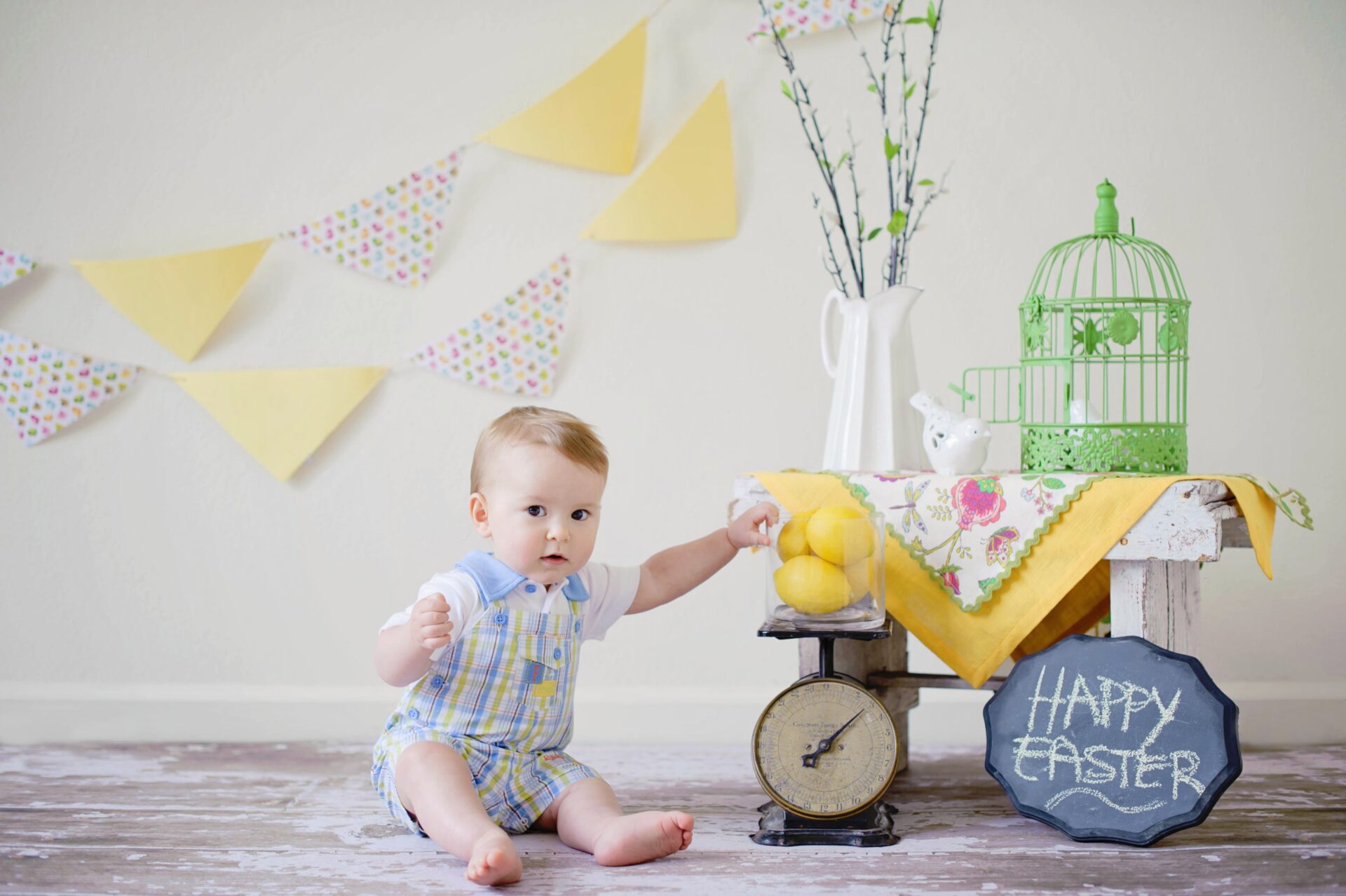The death of a child is one of the most traumatic experiences that any parent can endure. It can be overwhelming and difficult to cope with for both parents. The pain and grief can affect them emotionally, physically, and psychologically. Parenting after the death of a child can present multiple challenges for grieving parents. Coping with the death of a child can be a difficult journey and it may be difficult to know where to start. However, there are ways to manage the challenges of parenting after a loss. This article will provide tips and strategies on how to cope and handle the unique challenges of parenting after a loss.
Understanding Grief After a Loss
The death of a loved one can cause intense emotional pain that is difficult to manage. Parenting after a loss can present additional challenges and stressors, as you may feel overwhelmed while trying to balance the care of your children with your own grief. It is important to give yourself permission to experience the natural process of grief, as this will help you cope with the challenges you are facing.
Accepting Emotions as a Normal Part of Grief
Grieving after a loss often involves a range of emotions including sadness, guilt, anger, anxiety, and helplessness. It may also include physical effects such as fatigue, loss of appetite, and difficulty concentrating. It is important to recognize that these intense emotions and sensations are a normal part of the grieving process. Try to be patient with yourself and give yourself permission to feel whatever you are feeling.
Creating a Support System After a Loss
Navigating parenting after a loss can be an isolating experience. Reaching out to loved ones for support is essential as you grieve. Talk to close friends and family, join a support group, or seek professional help if needed. It is also important to talk to your children about the loss and answer their questions honestly.
Maintaining Self-Care When Parenting After a Loss
It is important to take care of your physical and emotional needs while parenting after a loss. Incorporate activities into your daily routine that help reduce stress, such as yoga, meditation, and exercise. Eating a balanced diet, getting enough sleep, and limiting the consumption of alcohol or other substances are also essential for managing your grief.
Finding Meaning in the Face of Loss
Finding meaning after a loss can be difficult, and it is important to recognize that everyone’s experiences are unique. It is helpful to set aside time each day to focus on positive memories and meaningful experiences you shared with your loved one. Connecting with nature, engaging in hobbies, and participating in spiritual practices can also help you find purpose and peace during this difficult time.
Grieving is a Long Process
Regardless of the circumstances, grief takes time. Allow yourself the space and time needed to process your emotions and the loss. Remember that you are not alone, and there is help available if you need it. Parenting after a loss can be an emotional rollercoaster, but with the right resources and support, you can move forward in your journey.
Coping Strategies for Parents
Parents who are struggling to cope with the challenges of parenting after a loss should not be afraid to seek professional help. Counseling from a mental health professional can be a great way to work through the intense emotions that often accompany a loss. Professional counseling can also help parents learn practical tips for dealing with the physical, emotional, and mental aspects of the bereavement process. Additionally, having a supportive person to talk to can be essential for a grieving parent.
Building a Support Network
Having a supportive network of family and friends after a loss can make a huge difference for a struggling parent. Having people who will listen to their concerns, provide emotional support, and lend a helping hand with everyday tasks can go a long way in reducing stress and helping grieving parents feel less overwhelmed. Encouraging friends and family to check in and offering to return the favor can be a great way to stay connected and benefit from the support of others.
Talking to Children About Grief
Parents who are dealing with grief after a loss need to make sure they also spend time talking to their children. It’s important to be open and honest with children, even when it comes to difficult topics like grief and loss. Parents should explain the loss to their children in age-appropriate language, answer their questions honestly and provide a safe space for them to talk about their feelings. It is also important for grieving parents to keep an eye out for the warning signs of unresolved grief in their children, such as depression, behavior changes, physical illness, and more.
Practicing Self-Care
One of the most important things grieving parents can do to cope with the challenges of parenting after a loss is to practice self-care. This can mean setting aside time for hobbies, taking breaks when needed, getting plenty of rest, eating healthy meals, and engaging in exercise or activities that bring joy. Parents who take care of themselves first will be able to better take care of their children and support them through their own grief.
The Role of Support Networks
Parenting after a loss can be a difficult journey, but having a supportive network can be a great help. Losing a child leaves a person feeling isolated, so having a network of friends and family to rely on can help to cope with the challenges of parenting after a loss. It’s important to talk openly with family and friends about the emotions associated with the loss, as well as to ask for help or advice when needed.
Identifying Sources of Emotional Support
Support networks can come from a variety of sources, such as family, friends, online support groups, therapists, and grief counselors. It is important to recognize both tangible and intangible sources of emotional support. Tangible sources can include help with meals or chores, while intangible sources might come in the form of a sympathetic ear or words of encouragement.
Finding Support Groups for Bereaved Parents
One of the most effective ways to cope with the challenges of parenting after a loss is to seek out support from others who have shared similar experiences. Support groups specifically for bereaved parents provide a safe and nurturing environment to talk about their children and the pain of their loss. These support groups can also offer advice on parenting after a loss, helping to learn how to best cope with the grief and move forward.
Utilizing Professional Grief Counseling Services
For parents who are still struggling to cope with the pain of the loss, professional grief counseling services may be a beneficial resource. Grief counselors are specially trained to provide the tools necessary to process the emotions associated with the loss, and to learn how to best manage them. They can also provide helpful advice and suggest other resources or support networks that may be beneficial.
Maintaining Self-Care
Parenting after a loss can be an incredibly difficult experience, and it is important to prioritize your own self-care if you are to effectively raise your children. Taking care of yourself first is a necessity for anyone parenting under challenging circumstances. Make sure that you are taking the time to get enough rest, eat properly, and find joy in the moments of your day. Reach out to friends and family for help when you need it and give yourself the permission to take some time away from parenting.
Find Support
It can be helpful to find support with other parents who are going through the same experience. Whether through therapy, online support groups, or in-person groups, finding people who can relate to your situation can help lessen the sense of isolation that is common during times of loss. You don’t have to go through this alone – there are people out there who are willing to help you get through it.
Set Boundaries
Setting healthy boundaries with your children and the other adults in their lives is essential when parenting after a loss. While it can be tempting to have your children take on additional responsibilities or to try and “do it all” yourself, it is important to recognize that your children are still growing and learning and should not be expected to take on too much. Make sure to communicate clearly with your children’s teachers and caregivers and work together to create an environment that meets their needs.
Focus on the Positive
It is easy to become overwhelmed by the pain and grief of your loss, but it is important to focus on the positive moments in your day. Make an effort to find joy in simple things, like spending time with your children, having meaningful conversations, or reading a book together. Don’t be afraid to ask for help and take time to appreciate the little moments of joy.
Practice Mindfulness
Mindfulness is a valuable technique for helping to manage stress and anxiety. Practicing mindful activities like yoga, meditation, or journaling can be beneficial for both you and your children during difficult times. When you make mindfulness a part of your daily routine, it can help you to better manage your emotions and cope with the challenges of parenting after a loss.
Finding a New Normal
Losing a parent is a traumatic event, and parents who have experienced that loss face unique challenges when it comes to parenting their children. It can be difficult to maintain a sense of normalcy and stability in the wake of such a life-altering event. For parents who are struggling with bringing a sense of normalcy back into their lives, here are some tips on how to cope with their grief and move forward in their parenting role.
Validate Your Feelings
It’s important to acknowledge the true depth of your sorrow and loss. It’s okay to be sad and to take the time you need to grieve. Don’t feel guilty for taking some time away from your parenting duties to focus on your own healing. Recognize that it’s a healthy part of the process and it will only help you get through this difficult time.
Seek Support
No parent should have to go through this alone. Reach out to family and friends for support and comfort. Consider finding a therapist or support group who specializes in grief and parenting after loss. It can be a great source of strength to talk to people who are going through similar experiences.
Create New Traditions
Developing new family traditions and rituals can be a way to honor the memory of a lost parent while also moving forward. This can be anything from a special dinner in honor of the person who has passed away, a regular outing to a certain location, or any other activity that becomes a family event.
Honor Your Child’s Feelings
Children can grieve in their own way. Make sure to honor and validate their feelings, no matter what they may be. Try to create an open dialogue so that your child feels comfortable talking to you and can express their feelings without judgement.
Focus on the Positive
Rather than dwelling on the sadness of the loss, try to focus on the positive moments and memories. Don’t try to replace your lost parent – no one can ever do that – but seek out ways to honor their memory through your interactions with your children.
Allow Yourself to Move Forward
It’s important to remember that it’s okay to move forward. While you may never forget your lost loved one, it’s essential that you find a new way to live and raise your children. Grief can be an ongoing process, but with the right approach and support, you can create a new normal and learn to thrive despite the sadness of your loss.
Moving Forward After Grief
Navigating the challenges of parenting after a loss can be incredibly difficult, but there are some steps that can be taken to help cope. Grieving the loss of a loved one is an important step in the healing process, and when parents are able to take the time to do this, they can better equip themselves to face the challenges of parenting after the loss. It can also be helpful to accept support and assistance from family and friends, as they can provide a needed distraction and comfort. Additionally, parents should understand it is okay to take a break from parenting and make sure to give themselves space and time to handle their emotions.
No matter how hard it may be, parents can find ways to parent in the wake of a loss. By taking care of themselves and indulging in compassion and love, parents can start to move forward after going through a period of grief.





Leave a reply